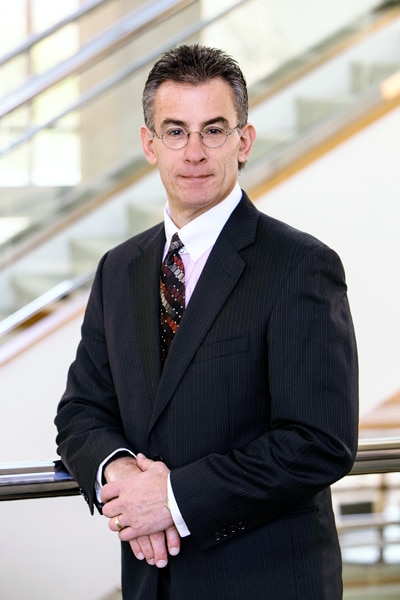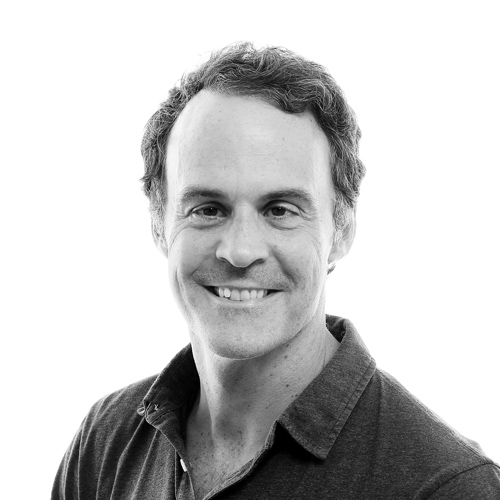
Joseph Campisi joined Bristol-Myers Squibb (BMS) as the drugmaker’s vice president and associate general counsel of the transactional practice group in 2003, and he admits his early days with the company were intimidating and marked by a daunting feeling of being “just a lawyer” surrounded by “brilliant scientists trying to cure cancer.”
But, he was driven to be there for his own reasons, too. Sure, he’d worked on about forty transactions for BMS as outside counsel before he ever came on board. And M&A work had become his specialty, and it’s what he brought to the table upon his hiring. But, he’d also lost his grandmother to cancer, as well as a few of his uncles. And he was at Memorial Sloan Kettering Cancer Center with his dad, who was enduring late-stage pancreatic cancer, when the doctors looked him in the eye and said, “Take your father home and make him comfortable. There’s nothing we can do for him.”
He didn’t want others to have to hear those words, and that’s what brought him to BMS, which manufactures medicines for cardiovascular disease and rheumatoid arthritis, among other illnesses, but remains a leading oncology company first and foremost. It didn’t take long to learn that his colleagues, brilliant scientists and otherwise, had similar reasons for being there. Campisi has since found ways to join together with them, both beyond and through his legal work, to help move the company’s many affiliated charitable causes forward.
Early on, thanks to a heavy interest in cycling, Campisi soon found himself a participant in the company-sponsored, cross-country fundraising bike ride known as the Tour of Hope. Campisi helped bring in $10,000 in 2004 and $15,000 the next year before cancer claimed yet another person he cared about. That’s when he started his own leg of the tour near his residence in Princeton, New Jersey. After research and conversations with a lot of BMS contacts, he got the Girasole Charity Ride under way in 2005.
“You find along the way that you need a permit from this school and need to talk to police departments from that area,” Campisi explains. “And you’ve got to get donations and set up all these ride stops and rest areas. We had three different routes and water donated, food donated, port-a-potties—everything we did was without cost. It’s amazing how, when you start talking to people about cancer, everyone’s been touched by it, directly or indirectly. I don’t think I was ever told no; it was always ‘What do you need?’ and ‘When do you need it?’”
By 2007, the Girasole Charity Ride had raised more than $21,000. Campisi was delighted, but with his responsibilities increasing at work and at home, where he had four daughters—“At one point, I was coaching four different softball teams!” he marvels—he found his time for organizing the ride shrinking away. He partnered with a neighboring town for one more year for the Carpe Diem-Girasole Charity Ride, which raised more than $61,000, before “handing over the keys,” as he says.
But the seeds of charitable involvement were sown deep into him at that point. “I got to thinking how I came to BMS to be part of a bigger cause, and another way BMS as a company is able to achieve that is through acts of the Bristol-Myers Squibb Foundation,” Campisi says, referring to his company’s nonprofit arm. “So, I put the feelers out and asked if, as a contract M&A lawyer, there was any way I could help the foundation.”
He soon learned that a member of the foundation team was trying to establish a network of attorneys willing to work pro bono for veterans needing health insurance assistance. BMS ended up helping the foundation create a legal panel from a dozen different firms, and Campisi was heavily involved in its coordination.
Another effort he undertook with the foundation was more a case of underwriting: the charity Stand Up to Cancer, with whom BMS had a relationship, was funding and producing the 2015 Ken Burns documentary Cancer: The Emperor of All Maladies, based on the book of the same name.
“I did all the contract work around the funding and the partnership,” Campisi says. “It was like a three-way relationship between Stand Up, BMS, and public TV. I was able to use my legal expertise to help put all that in place. Whether you’ve been directly or indirectly affected by cancer, it’s a fascinating book to read and a great documentary to watch. It really gives you a sense of how far we’ve come, and how far we’ve got to go.”
During his time with BMS, Campisi has also made an important discovery about his day-to-day work: only about 60 percent of the drugs BMS produces are created organically—that is, completely in-house—so “without external development, acquired through M&A work, places like BMS are not self-sustaining,” he says. “There’s a whole ecosystem of development that we have to tap into on a regular basis in order to continue in our development, in our pipeline.”
Suffice to say, he has a clearer sense these days of the contributions he and his legal team make to BMS’s mission of helping patients prevail over serious diseases. He was most recently promoted to senior vice president and deputy general counsel of the transactional practice group in 2016. The M&A work continues, but his managerial role is increasingly taking center stage as he hires and cultivates the skills of those on his team. “I feel fortunate to handle the problems of my team, making sure they have what they need in order to do their jobs to the best of their ability,” he says.
Daniel Wolf, a partner at Kirkland & Ellis LLP, has had the opportunity to witness Campisi’s managerial savvy himself. “For Joseph, it’s not just a deal,” he says. “He is committed to the company’s mission of putting patients first. He always reminds the team that every deal is potentially bigger than contract terms or purchase price; it could lead to the next breakthrough that saves lives.”
For Campisi and his staff, who work far from BMS’s labs and don’t oversee its clinical trials, the “What are we doing here?” feeling can still prove challenging at times. But, there’s definite inspiration to be found just looking around.
“There are people here who could be doing other things and making a lot more money doing them, but they’re here often because they lost a mother or a father or a child to this disease,” Campisi says. “So, whether it’s making photocopies or anything else that helps anyone do their individual function, we’re all contributing to the ultimate goal. If you can keep that in the back of your mind as you do your daily tasks, then nothing is mundane or unimportant.”
Expertise Spotlight
One firm Joseph Campisi and Bristol-Myers Squibb work with closely is Kirkland & Ellis LLP, a 2,000-attorney law firm representing global clients in M&A, private equity and other complex corporate transactions—as well as restructuring, litigation, dispute resolution/arbitration, and intellectual property matters. The firm has thirteen offices around the world: New York, Beijing, Boston, Chicago, Hong Kong, Houston, London, Los Angeles, Munich, Palo Alto, San Francisco, Shanghai, and Washington, DC.
As a leading advisor to some of the world’s largest public and private companies regarding their most complex, high-profile mergers and acquisitions, Kirkland’s M&A practice is consistently recognized for innovation, creativity, energy, and above all, a profound commitment to quality. Kirkland coordinates globally to bring together best-in-class lawyers across an extensive, cross-border platform, including renowned tax, finance, antitrust, litigation, intellectual property, regulatory, and executive compensation lawyers (as well as attorneys focused on related practices areas such as the Foreign Corrupt Practices Act, environmental regulation, and real estate). The firm’s M&A attorneys guide clients to smooth resolutions across a broad spectrum of industries while handling myriad complexities, including representing companies and boards of directors under attack by activists or in connection with contested transactions. Kirkland & Ellis prides itself on having lawyers—across all practice areas that are essential to sophisticated mergers and acquisitions—work together as an integrated, multidisciplinary team to provide seamless service with a focus on practical, commonsense problem-solving.


